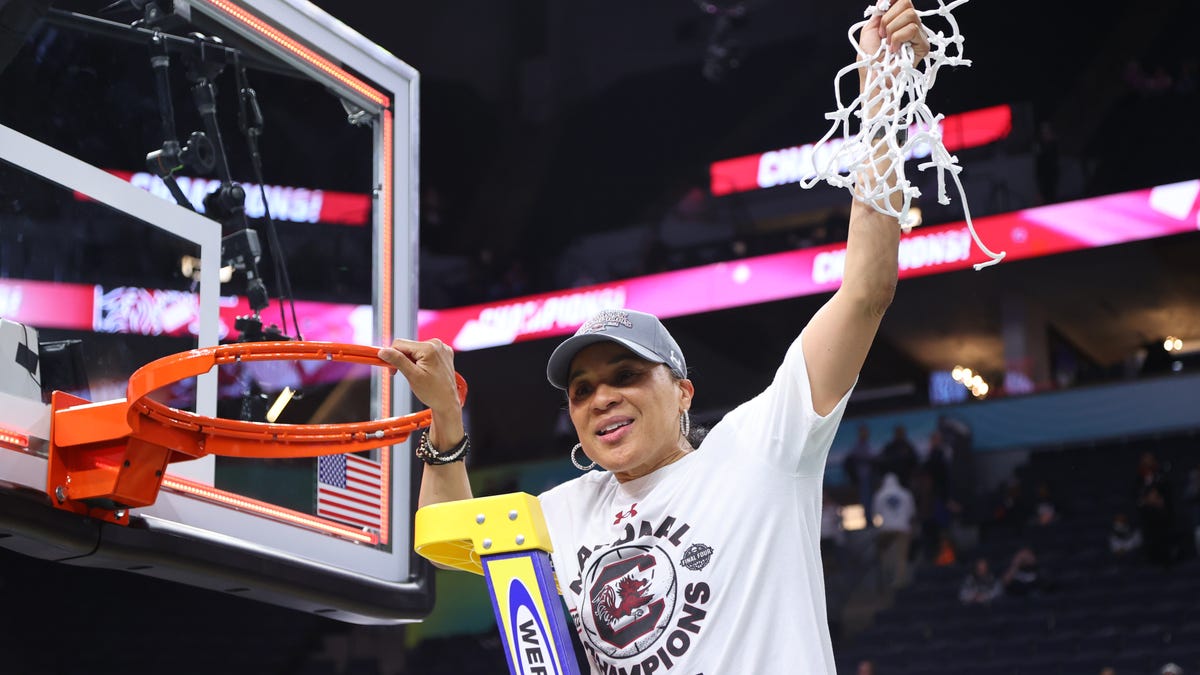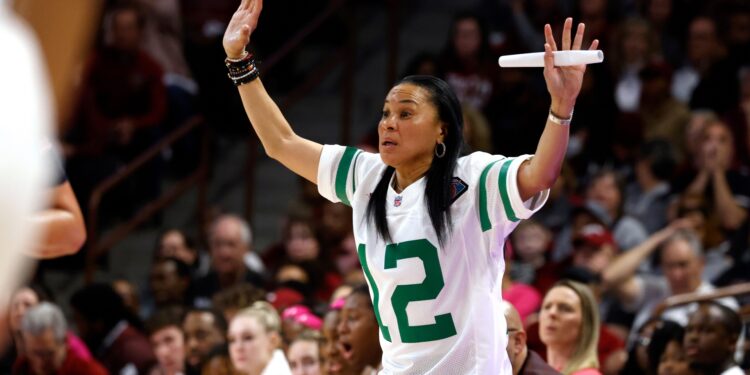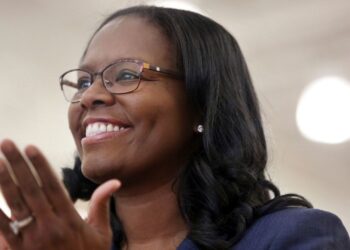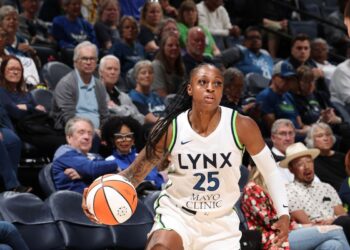By: Zachary Draves
The incomparable Audre Lorde once said “when I dare to be powerful, to use my strength in the service of my vision, then it becomes less and less important whether I am afraid.”
During her tenure at the University of South Carolina, Dawn Staley has exemplified that strength over fear mentality with pure black excellence. She holds true to her convictions no matter what comes towards her or her team. As the head coach, she has led the Gamecocks to two national titles (2017, 2022) and produced some of the games’ best talent (A’ja Wilson, Ailiayh Boston, Raven Johnson, Zia Cooke, and Brea Beal). In turn, she became the highest paid women’s basketball coach this year with a $3.3 million salary.

(Courtesy: Kirby Lee/USA Today Shorts)

(Courtesy: Elsa/Getty Images)
After an unbeaten South Carolina was upset to Iowa in the NCAA Semifinal on Friday, Staley, who was named the Coach of the Year, was asked by a reporter to “tell the truth about her team”. She responded as only she could with a little touch of black girl magic.
“We’re not bar fighters. We’re not thugs. We’re not monkeys. We’re not street fighters, “she said. “This team exemplifies how you need to approach basketball on the court and off the court. And I do think that that’s sometimes brought into the game, and it hurts.”

(Courtesy: Youtube)
She went on to say that going forward she is not going to change in terms of how she coaches nor alter the very physical style that has made them one of the best defensive teams.

(Courtesy: Jeff Blake/USA Today Sports)
“Don’t judge us by the color of our skin. Judge us by how we approach the game” she said. “You may not like how we play the game, that’s the way we play. That’s the way I coach. We’re not changing.
She did this after she got word that a media member had allegedly criticized her team with harsh language during a Final Four event on Thursday. Staley didn’t mention what the nature of those alleged comments were, but if it turns out to be true, it not only wouldn’t come as a surprise, but it fits a pattern of hostility towards black women in sports and society, or as it’s called in academia, misogynoir.
In 2010, Northwestern University scholar Moya Bailey coined the term to describe misogyny directed towards black women where racism and sexism intersect with one another. In other words, black women are routinely disrespected, disregarded, and degraded at the individual and institutional level.
Stereotypes of black women being “invulnerable”, “sassy”, “hypersexual”, or “angry” are common misogynoiristic tropes used in everyday cultural spaces as well as being used to reinforce long standing inequities in the education, health care, and criminal justice systems.
The Gamecocks have received a great deal of racist and sexist attacks on social media and in some areas of sports media in reference to the fact that they are a majority black team headed by an outspoken black coach that plays a style of ball that arguably would garner praise if it was the other way around. If it was an all white team, female or male, they would be called “blue collar”, “tough”, and “take no prisoners”.

(Courtesy: Neil Redmond/Associated Press)
Yet this about seeing blackness as innately threatening, which is nothing new.
Staley’s ascendance plus the animosity towards her and her team draws comparisons to prominent black coaches of the past who have endured similar experiences. The most notable of which is the late Georgetown head coach John Thompson.
Much like Staley, Thompson facilitated a basketball powerhouse that produced some of the biggest names in the game (Patrick Ewing, Alonzo Mourning, Dikembe Mutombo, and Allen Iverson). He also facilitated over a majority black team who played an aggressive playground style that invoked a certain paranoia around the Hoyas, which was later called “Hoya Paranoia” both affectionately and viciously.
They were often called “thugs” in the press which has been characterized as a racist dog whistle because it seeks to associate criminality with blackness. Thompson was also outspoken on matters racial justice and famously walked off the court in protest of an NCAA eligibility rule that he accused of being racially biased in 1989.
Over the years, Thompson and his teams won hearts over Black America for their resilience and resolve in the face of racism. The same holds true for Staley and the Gamecocks. If anything, as long as they continue to have the black community’s support, they will always be protected.
Although she and her team came up short, there is no denying that Dawn Staley has endeared herself to legions of black women in sports and beyond as well as created a litany of role models in the talent pool she has helped to fill.

(Courtesy: Getty Images)
One loss doesn’t diminish her impact because much like Maya Angelou, history may write her down with bitter twisted lies and trod her in the very dirt, but still like dust, she’ll rise.


 NFL
NFL





